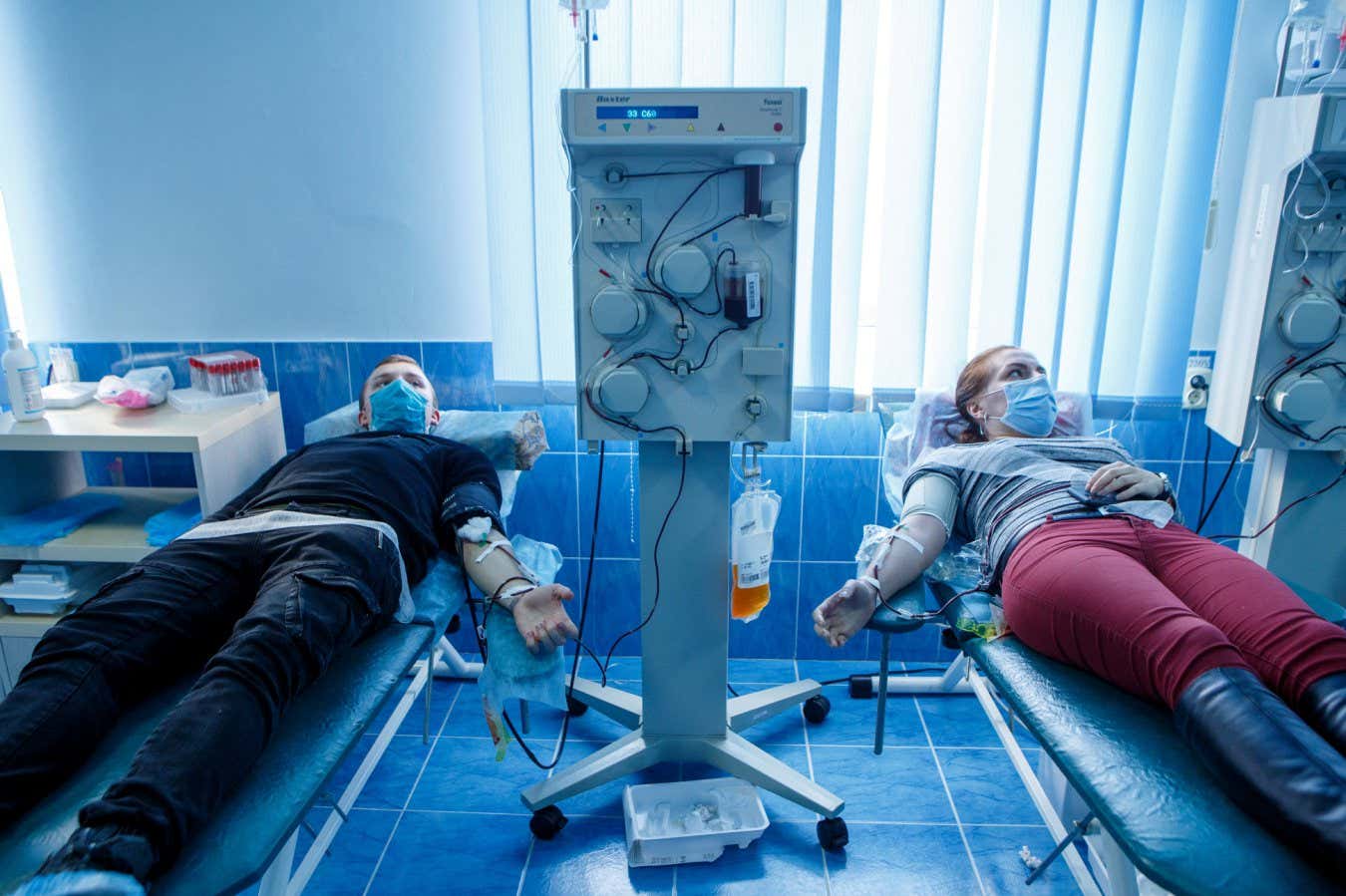Men who had given blood more than 100 times in their life were more likely to have blood cells carrying certain beneficial mutations, suggesting that donating blood promotes the growth of these cells
By Carissa Wong
11 March 2025
Blood donation may not be purely altruistic
SerhiiHudak/Ukrinform/Future Publishing via Getty Images
Frequent blood donors may be getting more than a warm, fuzzy feeling from their altruism, as giving blood may also enhance your ability to produce healthy blood cells, potentially reducing the risk of developing blood cancer.
Hector Huerga Encabo at the Francis Crick Institute in London and his colleagues analysed genetic data extracted from blood cells donated by 217 men in Germany, aged between 60 and 72, who had given blood more than 100 times. They also looked at samples from 212 men of a similar age who had donated blood fewer than 10 times, and found that frequent donors were more likely to have blood cells carrying certain mutations in a gene called DNMT3A.
Read more
The only four skincare ingredients that have been proven to work
Advertisement
To understand this difference, the team genetically engineered human blood stem cells – which give rise to all blood cells in the body – with these mutations and added them to lab dishes along with unmodified cells. In order to mimic the effects of blood donation, they also added a hormone called EPO, which the body produces following blood loss, to some of the dishes.
A month later, the cells with the frequent-donor mutations had grown 50 per cent faster than those without the mutations, but only in the dishes containing EPO. Without this hormone, both cell types grew at a similar rate.
“It suggests that, every blood donation, you’re going to have a burst of EPO in your system and this is going to favour the growth of cells with these DNMT3A mutations,” says Encabo.
